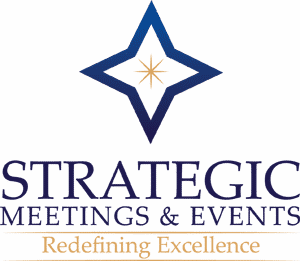Meeting Planners Sound Off on Their Biggest Challenges
By Jaimie Seaton
The challenges being faced by meeting planners are as wildly divergent as the events they plan. To succeed, they need to be informed, nimble, and tough.
— Jaimie Seaton
Meeting planning has come a long way since the days of booking a room at the Hilton and putting out some coffee. Today’s professionals have to navigate the sometimes-tricky waters between their clients or bosses, and their vendors.
Issues ranging from industry standards and multigenerational demands to market forces and even government regulation can all stand between a planner and a successful event. Skift asked a few industry leaders about their biggest challenges, and what they are doing to combat them.
CLIENTS WHO DON’T KNOW WHAT THEY WANT OR HOW TO GET IT
Aaron Kaufman is president and founder of Fifth Element Group, a Canadian-based events design firm, and what’s he’s finding to be the biggest challenge today is locating clients who know the difference between a professional meeting planner and a casual one.
“The challenge is not on the job side, it’s on the industry side,” he said. “It’s more an issue that we have industry-wise in terms of educating clients. The client is looking for services, but they’re not necessarily educated on what to look for [in a meeting planner]. Our industry lacks a lot of regulation, so it’s an easy process for any meeting planning company or any individual to say, ‘We are full service and we do everything.’
“There’s nobody regulating and no industry watchdog. Essentially, what happens, is you find, more often than not, our industry gets hurt because people are not qualified to do the job, and then clients don’t trust people who are professionals. It’s a big vicious circle. The client says this person says they do everything, and they are less expensive, and as it goes with almost every industry, that less expensive person who claims to be able to do everything can’t actually, and then clients don’t trust professionals. It’s lowering the bar for what we do, and that makes our job much harder.”
Kaufman added, “Even when you are dealing with good clients and you want to call around for quotes, less and less people want to indulge you, especially properties if you are out of town. There’s a lot of tire kicking that goes on. The biggest question I get is ‘How sure are you? Are you just looking for a quote or is the client signed with you?’”
Clients who are more educated about meeting planners would be a nice step.
“The biggest solution lies internally. We need to make sure that clients are educated. I’m hoping for the industry that we are able to educate clients to look for real professionals. I think that that’s a big solution,” he said. “Ultimately, the industry needs to regulate itself so there can be less mom-and-pop organizations claiming to be able to do everything under the sun. If a number of industry heavyweights go together and put out a message that ‘We are all going to adhere to a certain set of standards,’ that would be another solution.”
“Of course there are professional designations, like the certified meeting professional (CMP) and I’m a certified special events professional (CSEP), but all one needs to do to get them is to take a test. Then what? Which designation is better than the other and which is regulating the industry? None of them. There is no regulatory body.”
IT’S A SELLER’S MARKET
Shawna Suckow CMP, professional speaker in the hospitality industry, and author of “Don’t Become Extinct!,” said the biggest challenge for her, as a planner, is when she has to go through the contract negotiation process.
“It is a seller’s market and planners in many cases are feeling like they have no control, and sellers are taking advantage,” Suckow said. “This is the same complaint that sellers had during the buyer’s market. The pendulum always swings, and right now planners don’t like feeling out of control. It’s an incredibly busy market, and planners have to move very quickly, which we also don’t like. We’re getting offers of ‘take it or leave it, there is a line behind you out the door and if you don’t want this space at this ridiculously high rate, then see ya.’
Demand is particularly high today.
“There is so much demand for space and not enough of it. Sellers don’t even have to look for prospects; their phones are ringing off the hook. RFPs (requests for proposals) are piling in, their volume has tripled or more, and they can pick and choose which piece of business they want to accept. That frustrates planners and makes planners look bad because they can’t source a simple meeting. And when they do, the prices are ridiculous. As an example, normally there’s a one-time cost of $150 to drop a power line and now it’s $1,000 a day.”
What can planners do?
Suckow said, “There’s not a lot planners can do. If they have relationships that are long-standing, they have a little more leverage. If they have a relationship, they can have a dialogue, but if they have no preexisting relationship, they are powerless. The other solution is to seek out secondary or tertiary markets where they are will be more welcome. Places like Providence, Rhode Island, are booming right now; they just had their highest occupancy rate ever.”
However, she noted, “There will be a tipping point. I, and several others, predict there is no higher we can go. The market will tip and planners will have the power again in the next two years. What I always say is how you treat others when you have the power is how you will be treated when you don’t. A lot of planners misbehaved and took advantage during the recession, and they don’t like what’s being handed back to them now.”
MAKING MEETINGS FOR MULTIPLE GENERATIONS
“The biggest challenge is staying relevant while planning for multiple generations,” said Dana Saal, CMP, CAE, and principal of Saal Meeting Consulting.
Saal has 30 years’ experience as a planner and is now a consultant and coach. “Designing an association meeting today requires honoring the older participants who continue to find value in the current, albeit dated, model while convincing younger participants that the meeting offers something of value,” Saal said.
There are different generational exceptions.
Saal said, “Millennials are labeled as needy because they want to know ‘What’s in it for me?’ However, everyone wants to know what’s in it for them. In very broad terms, older participants want to see their once-a-year industry friends, enjoy a mini vacation, and maybe take home a new idea. Millennials also want to connect, but with new people in a way that cultivates discussion and new ideas. They want to be energized and to learn.”
What does Saal do then?
“To meet the challenge I design ways for both needs to be fulfilled at one meeting, as well as ways they can connect that lead to enhanced learning and, ideally, post-meeting relationships. For example, I create reverse mentor relationships where tech-savvy Millennials coach tech-shy Boomers. Or, present one topic two ways — as a traditional lecture and as a hands-on workshop. Same learning objectives; different delivery.”
PEOPLE JUST DON’T UNDERSTAND WHAT WE DO
Christy Lamagna, founder of Strategic Meetings & Events, has more than 26 years’ industry experience and has been teaching strategic planning at the college level for the past decade. Lamagna said the biggest challenge facing meeting planners today involves misperceptions.
“Until the event industry comes together and decides to professionally evolve from event planners into event strategists, the problems we face will prevail,” she said. “Every challenge we have; understaffed, overworked, under compensated, frustrated by a lack of respect, and a simultaneous feeling of being indispensable and invisible, will continue, until we commit to change.”
The industry is ready for a shared vision.
“Our profession is misunderstood,” Lamagna added. “The public thinks we are party planners, who get to travel for a living and who have ‘glamorous’ jobs. Family and friends have a vague understanding of what we do, but have no idea the depth or breadth of our responsibilities, expertise or pressure we work under. The challenge is that, as an industry we don’t have a shared vision for the profession, vocabulary to clearly and effectively articulate what we do, and a minimum recognized or mandated standard to be recognized as a qualified professional.”
Lamagna believes the industry needs to commit to change.
“Until we do the work to redefine who we are and how we perceive ourselves, we will not effect change in our workplace or in the eyes of the world. Doing this will require concerted effort, getting out of our comfort zones, a willingness to do the work required, make some difficult decisions and commit to the change and the process. Every problem we have has a solution within our reach. Start investigating how to become a strategic planner and add your voice, talent, energy and ideas to the movement. Until then, nothing can change.”
MANAGING ATTENDEE DATA
Irina Trofimovskaya, the Heidelberg, Germany-based founder of The Mice Blog, said she’s primarily concerned with an impending law that will impact the European Union.
“The forthcoming General Data Protection Regulation (GDPR) that will come into force on May 25, 2018, is a challenge that I anticipate. This regulation concerns data protection of individuals within the EU and its export outside the EU, and will apply to all industries. In the events industry we collect, process and share data almost on a daily basis to run the business, and from next year we might not be able to operate our business in the same way.
This is very different than how things work today.
“Until now, data could be easily shared at meetings with various stakeholders; now some processes will become more formal. A further challenge will be for businesses that operate internationally with countries that are not bound by this regulation.”
There is a lot of fear about the upcoming changes.
“There are still many question marks on this subject, how to best prepare ourselves and what will really happen. Many companies are scared of the fines and some delete entire databases. It’s important to start informing ourselves now and be ready when this regulation takes effect.”






